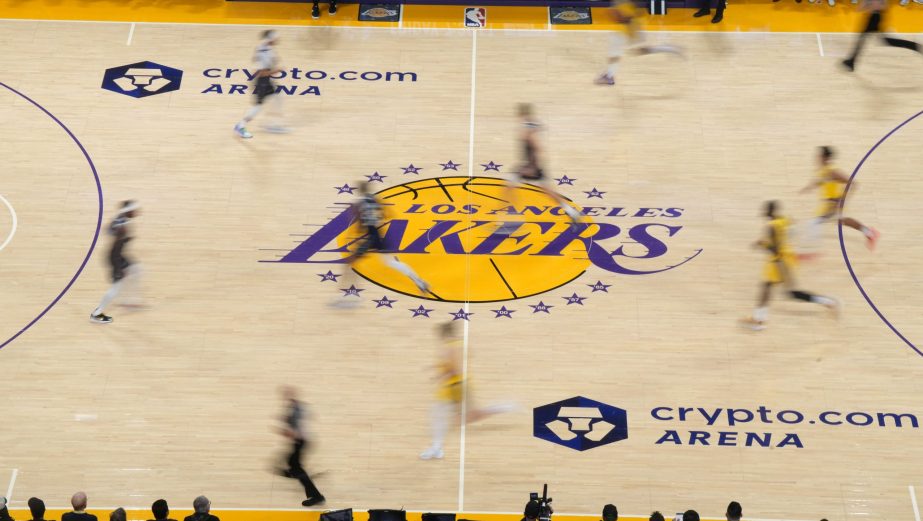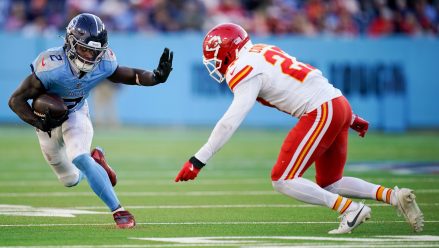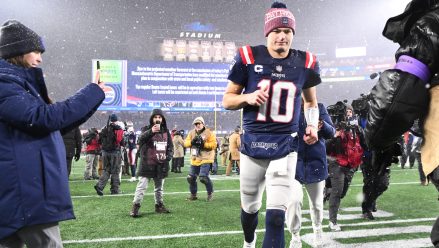Kalshi argued that a law that was initially intended to ban sports event contracts now “supports” its argument that the contracts are legal, in a new brief filed as part of its appeal to prevent its contracts being banned in Maryland.
Kalshi filed a brief in the U.S. Court of Appeals for the Fourth Circuit Wednesday, as part of its appeal of the decision in August by the U.S. District Court for the District of Maryland to deny Kalshi an injunction.
That injunction would have prevented Maryland from enforcing a cease-and-desist order against the prediction market. Without an injunction, Kalshi would have to take down its sports event contracts in the state. Currently, they remain available as the state has opted not to enforce its gaming laws against Kalshi until the Fourth Circuit makes its decision.
5b76b6be-d19b-46e4-9831-e88a6c19f695Kalshi’s response argued that District Court Judge Adam B. Abelson “erred” in a number of ways when he issued his opinion.
Kalshi points to ‘special rule’
One area Kalshi pointed to was Abelson’s focus on the “special rule” within the Commodity Exchange Act (CEA) that concerns contracts related to gaming, war, terrorism, or assassination.
(C)Special rule for review and approval of event contracts and swaps contracts
(i)Event contracts
In connection with the listing of agreements, contracts, transactions, or swaps in excluded commodities that are based upon the occurrence, extent of an occurrence, or contingency (other than a change in the price, rate, value, or levels of a commodity described in section 1a(2)(i) [2] of this title), by a designated contract market or swap execution facility, the Commission may determine that such agreements, contracts, or transactions are contrary to the public interest if the agreements, contracts, or transactions involve—
(I)activity that is unlawful under any Federal or State law;
(II)terrorism;
(III)assassination;
(IV)war;
(V)gaming; or
(VI)other similar activity determined by the Commission, by rule or regulation, to be contrary to the public interest.
“The distinct tension between Kalshi’s theory and the express language of the Special Rule confirms that Congress did not clearly and manifestly intend to preempt state laws with respect to sports wagering,” Abelson wrote in his opinion.
Kalshi argued that not only were its contracts allowed under this rule, but that in fact the rule was evidence in favor of the legality of sports event contracts.
“The district court relied heavily on the Special Rule, but the Special Rule supports Kalshi,” Kalshi’s brief says. “The Special Rule gives the CFTC discretion to prohibit the trading of certain categories of contracts if (but only if) the CFTC determines they are ‘contrary to the public interest.’
“Thus, even if the district court were right that Kalshi’s sports-event contracts involve ‘gaming’, that would make them among the ‘event contracts’ subject to the CFTC’s ‘review and approval,’ and thus subject to the CFTC’s exclusive jurisdiction.”
Whatever the interpretation of the rule now, at the time it was written its chief architect said it existed to prevent sports betting being allowed through CFTC-registered exchanges.
On the Senate floor in 2010, Sen. Blanche Lincoln, credited with writing the rule, said: “It would be quite easy to construct an `event contract’ around sporting events such as the Super Bowl, the Kentucky Derby, and Masters Golf Tournament.
“These types of contracts would not serve any real commercial purpose. Rather, they would be used solely for gambling.”
Lincoln, who is now a lobbyist whose clients include Kalshi, has argued that these statements are proof that she meant for the CFTC, not states, to determine when a contract may be against the public interest.
Kalshi: PASPA repeal timing supports our case
Kalshi went on to make the case that the illegality of sports betting outside of Nevada when the laws regarding event contracts were written — initially in 2000 with substantial updates in 2010, both prior to the repeal of PASPA in 2018 — also supports its argument that sports event contracts are legal.
While the District Court opinion said it was “highly unlikely that Congress would have overridden state gambling laws without at least some indication in the text and legislative history that it intended to do so,” Kalshi said, “PASPA no doubt explains why no DCM [Designated Contract Market] offered sports event contracts until recently.”
The prediction market argued that sports event contracts likely would have been considered contrary to the public interest while sports betting was illegal in most of the U.S. The widespread legalization, Kalshi’s brief said, “helps explain why the CFTC has allowed sports-event contracts in this very different landscape.”
Though both the PASPA and special rule arguments may appear somewhat counterintuitive, they highlight the extent to which the case hinges on the idea of preemption: the question of when federal law overrules state law.
In this case, the question is whether state gambling laws apply to Kalshi, or whether the prediction market is — as it argues — under the “exclusive jurisdiction” of the CFTC. As a result, Kalshi argues that Congress’ decision to write a rule giving the CFTC power to ban gaming-related event contracts shows that it understood state gambling laws do not apply.
The issue may be complicated somewhat by the fact that the CFTC last month wrote that it had not yet decided whether sports event contracts were prohibited. That would contrast with the idea that it had determined the contracts to be within the public interest and is continuing to allow them on those grounds.
Kalshi says Wire Act and IGRA aren’t obstacles
Elsewhere, Kalshi also disputed the idea that it violated federal laws such as the Wire Act and the Indian Gaming Regulatory Act (IGRA). In a repeat of arguments made in a case against three California tribes last month, Kalshi argues that IGRA does not cover online gambling, which it says is governed by the Unlawful Internet Gaming Enforcement Act (UIGEA) instead. UIGEA specifically carves out contracts offered by DCMs from the world of unlawful gambling.
Regarding the Wire Act, which bans wagers being made across state lines, Kalshi pointed to a “safe harbor” provision, which allows for information related to wagers to be transmitted between two states where sports betting is legal. As the CEA allows it to offer its sports event contracts in all 50 states, Kalshi says, the “safe harbor” provision covers its operations all across the U.S.
The provision concerns transmitting information related to wagers, not the bets themselves. However, Kalshi may be able to argue that the “safe harbor” provision applies to its business. Trades on Kalshi all go through a clearinghouse — Kalshi Klear — which technically handles the actual buying and selling of contracts. Customers’ bets, then, may be considered a form of “information” that is passed to the clearinghouse.
Little discussion of swap definition
The brief has very little to say on the question of whether sports event contracts are “swaps” — a type of financial contract typically used for hedging — as Abelson’s original decision was made without making a decision on the swaps question.
According to the Commodity Exchange Act (CEA), a swap includes “any agreement, contract, or transaction … that is dependent on the occurrence, nonoccurrence, or the extent of the occurrence of an event or contingency associated with a potential financial, economic, or commercial consequence.”
Questions about that definition have been central in a number of other court cases involving Kalshi. Last week, in a case concerning rival prediction market Crypto.com, the U.S. District Court for the District of Nevada ruled that sports event contracts were not swaps, and therefore were not under the jurisdiction of the CFTC, because swaps may concern whether or not an event happens, but not, for example, the winner of a sporting contest.
In the U.S. Court of Appeals for the Third Circuit, lawyers representing New Jersey argued that Kalshi’s sports contracts couldn’t be swaps because the “potential financial, economic, or commercial consequence” involved was too tenuous. Judges appeared skeptical of this argument, with one noting that the wording of the law itself appeared to be written to allow for trading on events with even minimal financial consequences.
On Thursday, the New Jersey legal team filed a notice in the Third Circuit pointing the judge to the Nevada-Crypto.com ruling, and arguing it is relevant in their case against Kalshi.
Kalshi argues for MA case to be in federal court
Elsewhere, Kalshi filed a brief in its lawsuit against Massachusetts, regarding the court that will ultimately hear the case. Massachusetts initially sued Kalshi in state court, before Kalshi attempted to move the case to a federal court, the U.S. District Court for the District of Massachusetts.
gov.uscourts.mad_.288973.37.0In its argument that a federal court should hear the case, Kalshi argued that the Commodity Exchange Act specifically set out a course of action to bring claims against a DCM perceived to be violating its requirements. This, it said, was via the federal courts.






